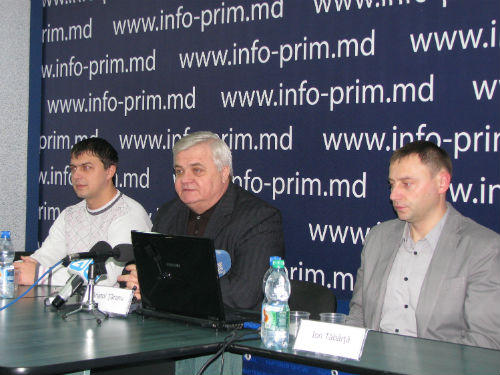
Prime Minister Vlad Filat, Minister of Foreign Affairs Iurie Leanca and Mayor of Chisinau Dorin Chirtoaca make the top three in Top 50 the most influential politicians of 2012. The ranking is compiled by the Center of Strategic Research and Political Counseling “Politicon” and are based on monthly tops throughout the year, Info-Prim Neo reports.
Politicon vice president Ion Tabarta said during a press conference on Friday that Prime Minister Filat always remained top of the bunch in the monthly rankings. Iurie Leanca started on the 6th position, dropped to 8th in February, then rose to 3rd. Afterwards, he moved up and staid 2nd the rest of the year, except for June when he dropped to 4th. Dorin Chirtoaca started 3rd, then suffered a small decline, but on the average he ranked about 3rd.
Politicon president Anatol Taranu said that Vlad Filat never lost hold of his top position thanks to his office of Prime Minister and his personal political skills. Iurie Leanca remains the no. 1 diplomat that acts the most in foreign policy and this is one of Moldovan politics’ most successful fields. As regards the third position, Anatol Taranu said that the Mayor of the capital remained a highly influential politician in Moldova and still had the potential to grow. Most likely, the Mayor might be able to provide some competition for the Prime Minister.
The 4th place is occupied by Speaker Marian Lupu, who dropped two positions. He is followed by President Nicolae Timofti. Traditionally, Liberal Party leader Mihai Ghimpu sits 6th. PCRM head Vladimir Voronin dropped two places to 7th. The top 10 is complemented by First Deputy Speaker Vlad Plahotniuc and MPs Dumitru Diacov and Valeriu Strelet.
As regards the political year 2012, Anatol Taranu labeled it a “year of sorting things out”. The governing alliance overcame an ample and lengthy institutional crisis, was able to elect the President and to avoid early elections. Anatol Taranu said that in 2012 political life resumed its normal course and progressed on the path of European integration. The main failure, according to Taranu, was the inability to make a leap in the economic reform.

